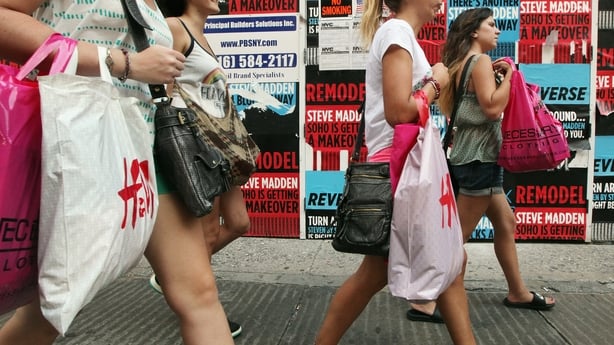Euro zone businesses started the second quarter with healthy growth as a buoyant order book again encouraged them to hire more, a survey showed today.
Any sign that the bloc's recovery is gaining traction will be welcomed by the European Central Bank, which embarked on a €1 trillion bond buying stimulus programme in March.
But today's survey did show that firms were still cutting prices.
Markit's final composite Purchasing Managers' Index, seen as a good guide to growth, was 53.9 in April, ahead of an earlier flash reading of 53.5 but just behind March's 11-month high of 54.
A reading above 50 implies growth.
"The fact that the rate of growth failed to gain further momentum is a disappointment, but the national growth variations will give policymakers some real encouragement that the economic health of the region is improving," said Chris Williamson, Markit's chief economist.
The PMIs suggest quarter-on-quarter growth of 0.4% for the three months from April to June, Williamson said, which would match forecasts for first-quarter growth.
But to drive that growth firms cut prices again - albeit less sharply in April.
The composite output price index, which rose to 49.2 from 48.9, has now been below 50 for three years.
Official data last week showed the euro zone ended four months of deflation in March with consumer prices unchanged from year-ago levels.
Price discounting helped a PMI covering the dominant service industry remain elevated. It came in at 54.1, just shy of March's eight-month high of 54.2 but ahead of the flash 53.7 estimate.
The pace of new orders matched March's near four-year high of 54.6. That encouraged service firms to increase staffing levels for a sixth month in a row.
Euro zone March retail sales weaker than expected
Euro zone retail sales were weaker than expected in March, data showed today, turning negative on a monthly basis for the first time since last September.
The European Union's statistics office Eurostat said retail sales in the euro zone fell 0.8% month-on-month for a 1.6% year-on-year rise.
Economists polled by Reuters had expected only a 0.7% monthly fall and a 2.4% annual increase.

The decline in sales came despite a sharp improvement of sentiment both among consumers and in the retail sector in March, as measured by the European Commission's monthly economic sentiment survey.
A 2.7% monthly drop in the volume of automotive fuel seemed to have the biggest downward impact on the headline number, followed by a 0.8% decline in the volume of sales of non-food products.
Retail sales in the euro zone's biggest economy Germany fell 2.3% month-on-month in March and were 0.3% lower in the second biggest France.
In year-on-year terms in the euro zone, a 0.7% fall in petrol sales partially offset a 3% rise in the sales of non-food products.

